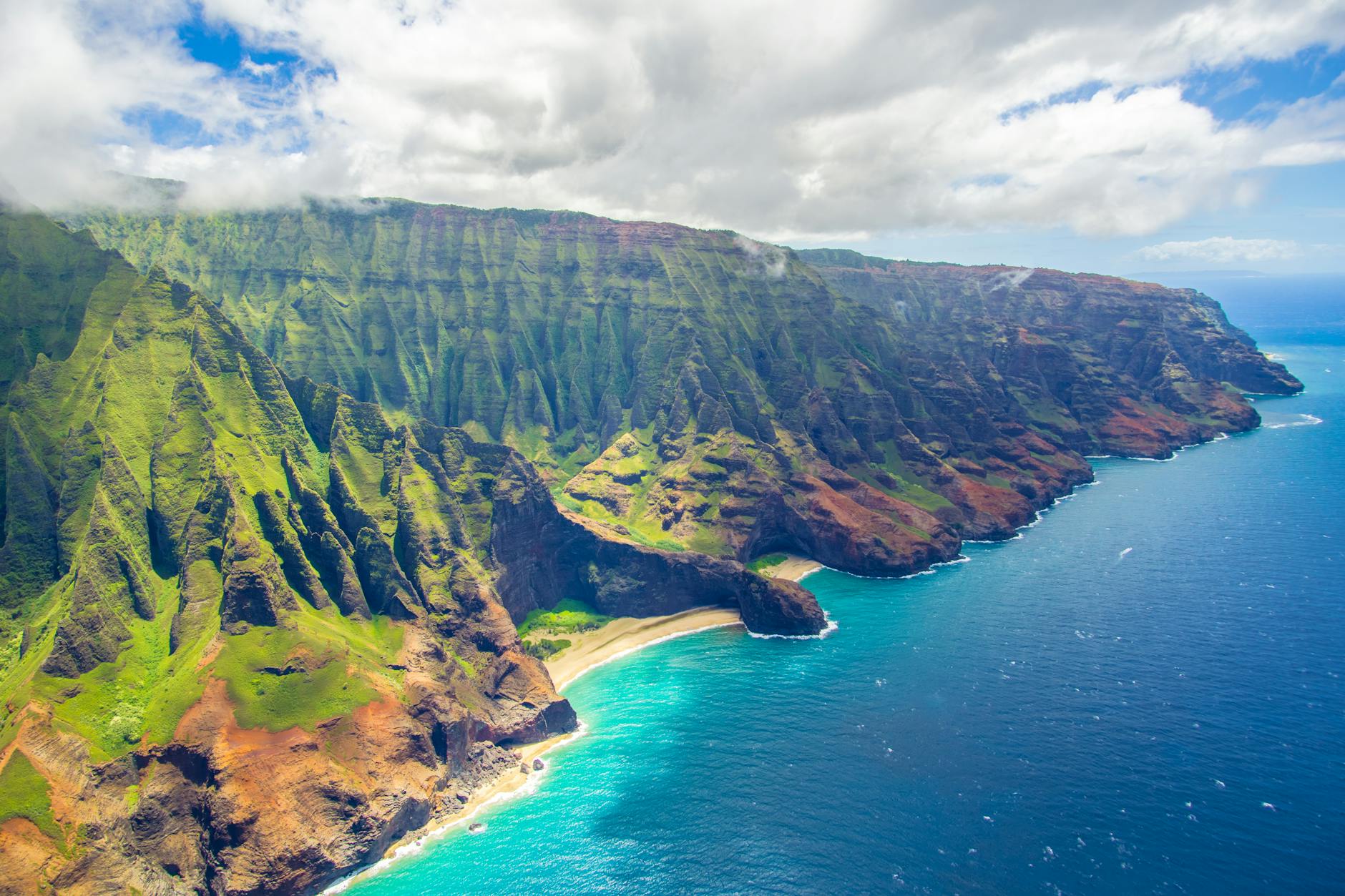How to Plan an Eco-Conscious Antarctic Expedition from Australia

Choosing an Eco-Conscious Expedition
Selecting an eco-conscious expedition is crucial for anyone passionate about marine conservation. One essential aspect I focus on is choosing arctic cruises that offer research-focused tours. These tours provide opportunities to collaborate with experts and tap into the unique insights gathered from the University of Queensland's marine studies department. Prioritising expeditions that align with sustainability practices is of utmost importance. Many tours now integrate renewable energy sources and minimise single-use plastics, reflecting the ethos found in the Great Barrier Reef research stations.
When evaluating environmental credentials, I look for certifications and affiliations with recognised conservation bodies. The Queensland Museum's marine exhibits highlight initiatives that are shaping modern sustainable practices. This ensures that the expedition is not only informative but actively contributing to the preservation of delicate ecosystems.
From my experience in research expeditions, the difference lies in the details. A cruise that limits its passenger capacity can significantly reduce environmental impact. Opting for companies that share explicit commitments to conservation, and working alongside academics and researchers, embodies the spirit of sustainability.
Selecting such expeditions allows one to participate in meaningful change while gaining unparalleled field experience. It's about making informed choices that empower us to contribute to marine science responsibly.
Preparing for the Antarctic Environment
Understanding Climate Conditions
When venturing into the Antarctic, comprehending its harsh climate is critical. The environment here is drastically different from what we observe at places like the University of Queensland's marine studies department. Low temperatures, intense winds, and rapid weather changes are common and demand thorough preparation. It's important to research current climate trends and historical weather data through reliable scientific channels to stay informed.
Packing Eco-Friendly Gear
Sustainable travel necessitates eco-friendly equipment. Opt for gear made from biodegradable, recyclable, or sustainable materials. Your choices should include clothing items that are both warm and ethically produced. During my time planning research expeditions, selecting the right gear was as non-negotiable as considering the ecological impact of such items. Some simple steps include choosing reusable water bottles or bags to reduce waste.
Safeguarding Research Equipment
Antarctic expeditions require the safe transport of sensitive research equipment. Utmost care must go into packing these items, ensuring they are insulated and protected from the extreme cold. During one of my journeys to the Great Barrier Reef research stations, I learned that robust packaging solutions can significantly reduce the risk of damage. Investing in equipment cases designed specifically for harsh climates is advisable to maintain the integrity of your data collection instruments.
Embarking on such ambitious trips, like those found on south america holidays, requires thorough planning and an unwavering commitment to sustainability. By considering every detail, we can focus on preserving the delicate balance of the Antarctic ecosystem.
Navigating Logistical Challenges
Coordinating Departure from Australia
When planning antarctic tours, one of the key logistical hurdles is coordinating the departure from Australia. Brisbane's proximity to the University of Queensland's marine studies department offers a plethora of resources for marine-focused adventurers. Before departure, it’s crucial to align your itinerary with academic calendars if you're coordinating with research bodies. In my own experience, aligning our logistics with the operational timetables of research stations on the Great Barrier Reef proved advantageous.
Securing Necessary Permits
Acquiring the appropriate permits is pivotal for a seamless expedition. The Australian Antarctic Division, based in Hobart, is your primary contact for these requirements. They offer comprehensive guidance on securing permits required for research and conservation work. From personal experience, engaging with these authorities early in the planning process ensures compliance with Australian environmental regulations, reflecting a commitment to sustainable practices.
Collaborating with Logistics Providers
A successful Antarctic expedition heavily relies on efficient logistics management. Collaborating with experienced providers ensures your research equipment and team are safely transported. Select providers familiar with the unique needs of scientific endeavours. I recall an instance where partnering with a logistics company familiar with marine studies significantly streamlined our preparations. They understood the delicate balance required between equipment transportation and environmental considerations. By thoroughly planning each logistical aspect, you embark on a smoother, more effective journey in this critical region.
Engaging with Local Conservation Efforts
Partnering with Research Stations
Collaborating with local research stations during South America tours significantly enriches our contributions to marine conservation. Having led various research expeditions, I've seen firsthand how effective partnerships can be in Queensland, especially when connecting with the Great Barrier Reef research stations. By sharing data and resources, we collectively enhance our understanding of marine ecosystems. Stations often provide crucial information and logistical support, ensuring that data collection and preservation efforts are well-coordinated and impactful. Moreover, they can help navigate regulatory requirements and local environmental guidelines, giving us a more comprehensive approach to conservation.
Understanding Wildlife Preservation
Diving into the complexities of wildlife preservation is a cornerstone of any marine conservation effort. Insights gained from studying exhibits at the Queensland Museum revealed the delicate balance required to maintain biodiversity in fluctuating climatic conditions. Observing natural behaviours and understanding the specific needs of marine species can direct more effective conservation tactics. It’s crucial to remain updated on the latest preservation strategies and collaborate with local experts who have nuanced knowledge of the ecosystem.
Contributing to Data Collection
Collecting data is a fundamental element of any conservation initiative. During my time at the University of Queensland's marine studies department, we cultivated strategic methodologies for data collection that could be adapted to different marine environments. These techniques can be applied globally to monitor habitat changes and track the health of marine life. By contributing reliable data, you empower local and global communities to enact informed conservation policies, driving meaningful environmental change.
Eco-Conscious Travel Expertise
Reduce Your Carbon Impact
As we embark on journeys that open our eyes to the beauty and necessity of preserving our Earth, it becomes imperative for us to minimise our carbon footprint. From my time working at the University of Queensland's marine studies department, I've observed the profound effects that seemingly small adjustments can make. Opt for public transport or shared rides to your departure point, or better yet, use self-propelled options such as cycling. While planning expeditions, consider choosing vessels powered by eco friendly fuel options to ensure a cleaner transit across our oceans.
Leave No Trace
Immersed in the vivid world of the Great Barrier Reef research stations, I've learned the irreplaceable value of adhering to Leave-No-Trace principles. These practices safeguard our delicate marine ecosystems. Ensure all waste is meticulously collected and properly disposed of. I often recall expeditions where researchers would carry reusable containers, effectively eliminating single-use plastics. This small but mighty habit generated considerable impact in preserving the pristine settings around us.
Champion Sustainable Tourism
Supporting sustainable tourism initiatives enhances conservation both locally and globally, leaving an indelible mark on our environmental progress. During visits to informative hubs like the Queensland Museum's marine exhibits, it is crucial to financially back tours and projects that prioritise marine protection and education. By aligning travel choices with conservation-focused establishments, we promote ecological mindfulness and empower ongoing efforts to counteract the harmful effects of climate change.


